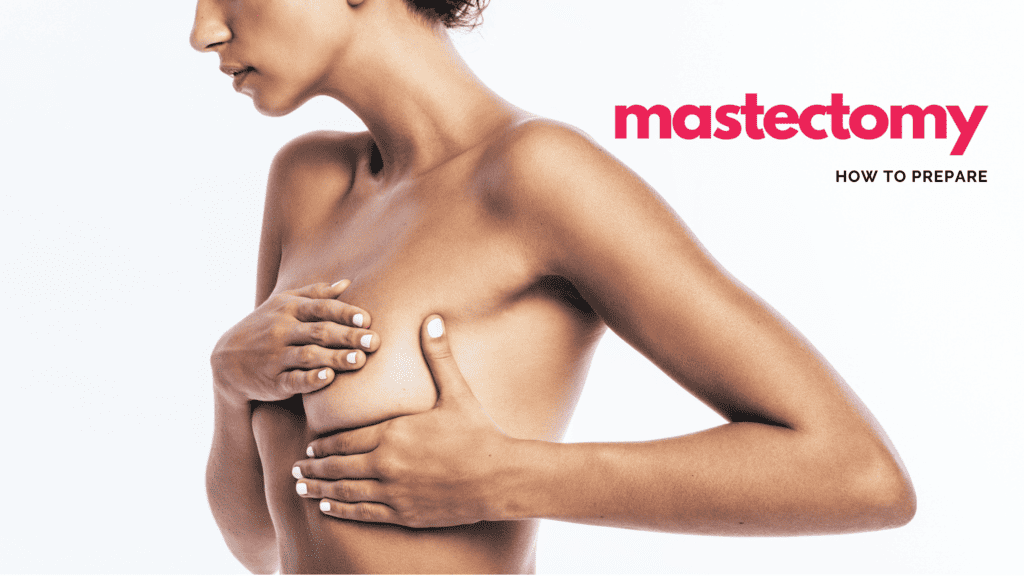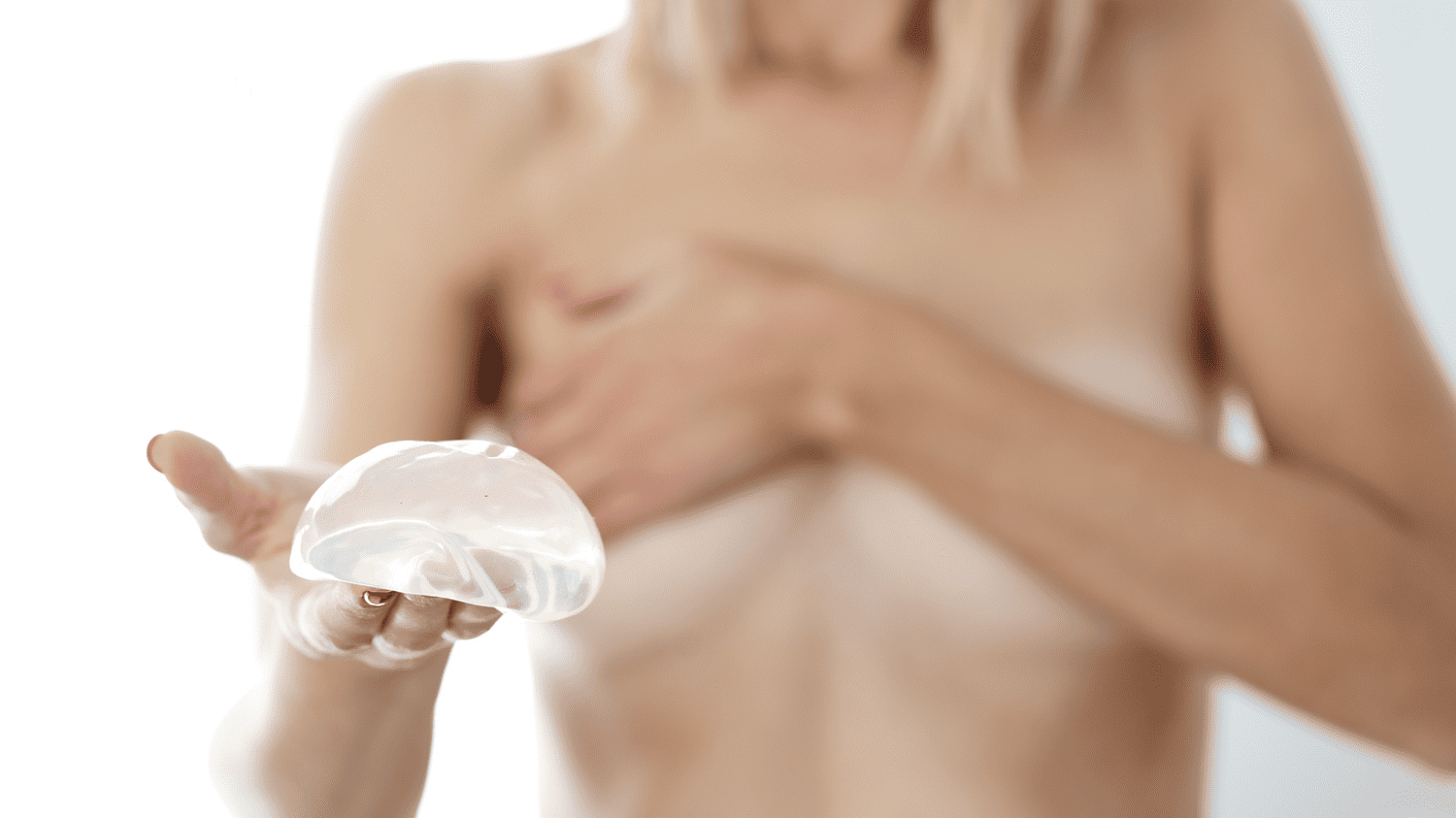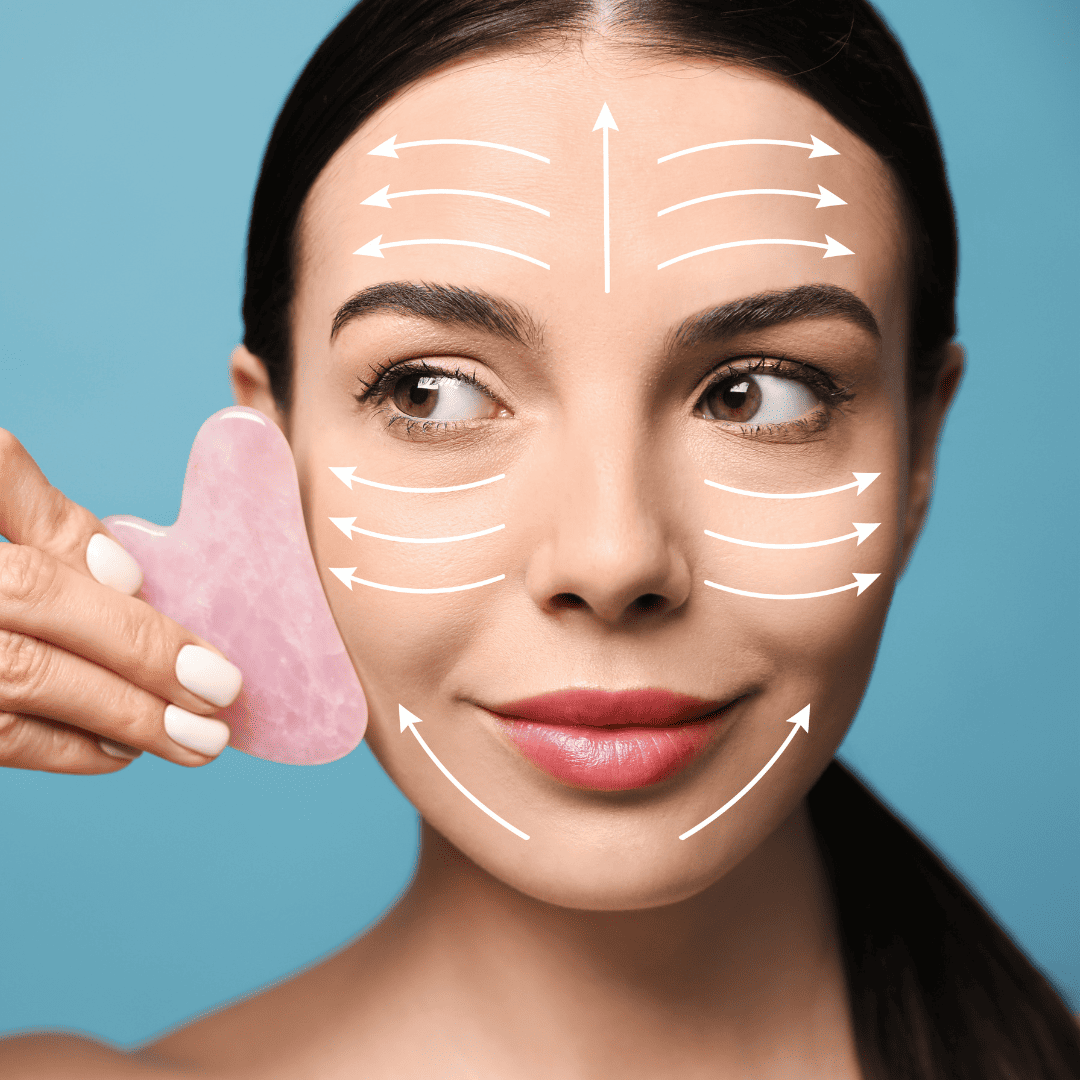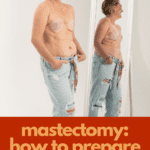Mastectomy: How to Prepare
Last updated on May 1st, 2023 at 01:01 am

Breast cancer can be a tough journey. One treatment option is a mastectomy. In this blog post, we’ll discuss what to expect when you have a mastectomy for breast cancer. We’ll talk about the process, recovery, and emotions involved. By the end, you’ll have a better understanding of what to expect. Let’s dive in!
What is a mastectomy?
A mastectomy is a surgery to remove a breast. Doctors perform it to treat breast cancer. There are different types of mastectomy. Some remove the entire breast, while others remove only part of it. Your doctor will help you choose the right one for you. A double mastectomy is when they take both your breasts. This is also called a bilateral mastectomy. A single mastectomy is when they just take one breast.
Double Mastectomy or Single Mastectomy?
Many women find they have cancer only in one breast and are offered the option of either single or double mastectomy. For me, I didn’t want to have to do this whole process and surgery all over again, so I chose to have both breasts removed.
Before Mastectomy Surgery
Before surgery, you’ll have appointments with your doctor. They’ll explain the procedure and answer questions. You may have tests, like blood work or imaging scans. These help your doctor plan the surgery.
Preparing for surgery is important. You might need to stop taking certain medications. Your doctor will give you instructions. You may also need to shower with special soap the night before. This helps prevent infection.
Day of Surgery
On the day of surgery, you’ll arrive at the hospital early. You might feel nervous. That’s okay. The medical team will help you feel comfortable.
You’ll change into a hospital gown. A nurse will start an IV in your arm. This is for fluids and medications. You’ll meet with the anesthesiologist. They’ll give you medicine to make you sleep during surgery.
The Surgery
Once you’re asleep, the surgery will begin. Your surgeon will make an incision on your breast. They’ll remove the breast tissue and, if needed, nearby lymph nodes. Most times they at least take the “sentinel” lymph nodes, which are the first 2-3 nodes after the breast. The surgery may take a few hours. You won’t feel any pain during this time.
After Surgery
When the surgery is over, you’ll wake up in a recovery room. You’ll feel groggy from the anesthesia. A nurse will monitor your vital signs. They’ll check your blood pressure, heart rate, and oxygen levels.
You may have a drain in your chest. This helps remove fluid from the surgery area. A nurse will teach you how to care for it at home.
You might stay in the hospital or you might go home the same day. For me, and for many women in an online support group I am part of, we had same day surgery and were let go the same day! Because I had traveled about 3.5 hours to where I was getting surgery, we chose to stay a couple nights in a hotel near the Mayo hospital where I had my mastectomy, so that if there were any immediate post-op issues I wouldn’t have to make that big drive again.
Recovery at Home after Mastectomy
Recovering at home after a mastectomy is important. You’ll need to rest and take care of yourself. Follow your doctor’s instructions closely. If you’re like me, you might feel pretty good afterward, and I hope this is the case for you as well!
You may have pain, swelling, or numbness. Your doctor will give you medicine to help. Use it as directed. You can also use ice packs to reduce swelling.
Caring for your mastectomy incision is crucial. Keep it clean and dry. Watch for signs of infection, like redness or warmth. If you notice any, call your doctor.
You’ll need to take it easy for a few weeks after the mastectomy. Avoid heavy lifting and strenuous activities. Gradually, you’ll be able to do more.
Physical Therapy and Exercises
You may need physical therapy after mastectomy surgery. This helps regain strength and movement in your arm and chest. A physical therapist will guide you through exercises. They’ll also teach you how to prevent lymphedema, a swelling in the arm. I haven’t had to do any physical therapy, but at about 8 months out, I still feel quite a stretch when I reach up to get something on a high shelf. It doesn’t hurt, really, but I sure notice it!
It’s important to follow the exercise plan. It helps you heal and get back to normal activities. Be patient with yourself. Recovery takes time.
Emotional Recovery
Mastectomy can bring many emotions. You might feel relief, sadness, or anger. These feelings are normal. It’s important to talk about them. Emotional recovery is just as important as healing the body. Let’s talk about ways to feel better after this tough experience.
First, it’s normal to feel sad, angry, or scared after a mastectomy. These feelings can be strong and may last a while. It’s okay to let yourself feel these emotions. Talking to someone can help. Share your feelings with friends, family, or a support group. They can listen and offer help.
Mastectomy support groups can be a great place to find others who understand what you’re going through. They can share their own experiences and offer helpful tips. You might make new friends who can support you during this time.
It’s also important to take care of your body. Eating healthy and exercising can make you feel stronger. Ask your doctor about the best activities for you. They might suggest walking, swimming, or yoga. These can help your body heal after mastectomy and boost your mood too.
Don’t forget to do things you enjoy. Hobbies and activities can help you feel like your old self again. Watch your favorite movie, read a good book, or try a new craft. Spend time with loved ones and have fun. This can lift your spirits and help you heal emotionally.
Remember, it’s okay to ask for help. Lean on friends, family, or a counselor if you need support. They can offer encouragement and advice. They want you to feel better too.
Lastly, give yourself time to heal after your mastectomy. Emotional recovery is different for everyone. Some people may feel better quickly, while others may take longer. Be patient with yourself and take things one step at a time.
In conclusion, emotional recovery after a mastectomy can be challenging. It’s normal to have many feelings during this time. Talk to others, take care of your body, and do things you enjoy. Remember, it’s okay to ask for help and give yourself time to heal. You can overcome this tough experience and feel better.








